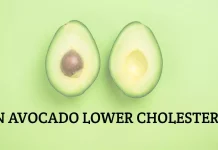Join us on a journey towards a healthier lifestyle by uncovering the secrets of the tropical delight – pineapple. This vibrant fruit goes beyond its sweet taste, offering many benefits that can enhance your well-being. From boosting your metabolism to controlling cravings, let’s explore the fantastic advantages of making pineapple a delightful companion on your path to a healthier you.
Here are the Six Benefits of Pineapple for Your Weight Loss Journey
Nutritional Benefits of Pineapple for Weight Loss
Pineapple, with its lively flavor and tropical charm, comes packed with nutritional perks that can play a crucial role in helping you on your weight loss path. Let’s explore the essential elements:
a. Fiber Content: One of the standout features of Pineapple is its impressive fiber content. Including Pineapple in your diet introduces a natural and delicious source of dietary fiber, which supports weight management by curbing unnecessary snacking and promoting satisfaction.
b. Vitamins and Minerals: Pineapple is nutrient-rich and provides essential vitamins and minerals for various bodily functions. Abundant in vitamin C, Pineapple is associated with weight management as it supports the synthesis of carnitine, a compound aiding fat conversion into energy during exercise. Including Pineapple in your diet boosts these vital nutrients for overall well-being and potentially enhances weight loss efforts.
c. Antioxidants and Weight Loss: Pineapple boasts antioxidants like flavonoids and phenolic acids, countering oxidative stress linked to inflammation and weight gain. Introducing Pineapple into your meals or snacks provides antioxidants that may help reduce inflammation, creating a favorable environment for weight loss.
d. Low-Calorie Sweetness: Opting for Pineapple as a sweet treat is brilliant for those cutting down on added sugars. Its natural sweetness offers a satisfying indulgence without the calorie load of processed sweets. Pineapple becomes a flavorful and guilt-free option for individuals with a sweet tooth, aligning with weight-conscious dietary choices.Pineapple’s Role in Metabolism
a. Bromelain Overview: Bromelain, a potent enzyme complex found in Pineapple, mainly in its core and stem, has gained recognition for its digestive benefits and potential impact on metabolism. This unique compound intrigues the discussion of weight loss.
b. Metabolism and Weight Loss: Metabolism is the body’s converting consumed food and beverages into energy. A higher metabolism is often associated with a more efficient calorie-burning mechanism, beneficial for weight loss. Bromelain affects metabolism in several ways, potentially aiding in weight management efforts.
c. Calorie Expenditure: Bromelain’s enzymatic properties may enhance the breakdown of proteins during digestion, requiring energy and resulting in increased calorie expenditure, known as the thermic effect of food. While not dramatic, incorporating bromelain-rich Pineapple into your diet could modestly contribute to increased calorie burning during digestion.
d. Anti-Inflammatory Effects: Inflammation is associated with obesity and metabolic disturbances. Bromelain, with its anti-inflammatory properties, may help alleviate inflammation. Bromelain might create an environment conducive to efficient metabolism and weight regulation by addressing inflammatory factors.
e. Enhanced Nutrient Absorption: Improved digestion by bromelain may enhance the absorption of essential nutrients. Efficient nutrient absorption ensures the body receives the necessary elements for overall health, potentially supporting metabolic processes related to weight management.
f. Exercise Recovery: Bromelain’s anti-inflammatory properties may extend to post-exercise recovery. Bromelain could contribute to faster recovery by reducing exercise-induced inflammation, enabling individuals to engage in regular physical activity, a crucial component of any successful weight loss journey.
g. Considerations and Tips: While bromelain is valuable, viewing Pineapple as part of a holistic approach to weight loss is crucial. Including various nutrient-dense foods, maintaining a balanced diet, and staying physically active are integral components of a healthy lifestyle.Pineapple’s Fiber and Appetite Management
a. Fiber in Pineapple: Pineapple is rich in dietary fiber and promotes feelings of fullness and satiety. This natural component, found abundantly in Pineapple’s flesh, is a valuable asset for those aiming to control appetite and manage calories.
b. Soluble Fiber’s Satiation Superpower: Pineapple’s fiber includes soluble and insoluble forms, with soluble fiber being particularly influential in promoting satiety. Soluble fiber absorbs water in the digestive system, forming a gel-like substance. This process slows down nutrient digestion and absorption, leading to prolonged fullness after consuming Pineapple.
c. Extended Fullness and Reduced Caloric Intake: When you consume Pineapple, especially as part of a balanced meal or snack, the soluble fiber starts working in the stomach. Expanding and absorbing water creates a lasting fullness, which is beneficial for managing appetite and reducing the likelihood of excessive calorie intake in subsequent meals or snacks.
d. Controlling Cravings and Snacking: Hunger and cravings are significant challenges in weight management. Pineapple’s soluble fiber plays a crucial role in controlling cravings by promoting a sense of fullness, which is particularly helpful in curbing unnecessary snacking between meals.
e. Balancing Blood Sugar Levels: Apart from its satiating effects, soluble fiber stabilizes blood sugar levels. Pineapple’s fiber helps prevent rapid spikes and crashes in blood glucose by slowing down sugar absorption. It contributes to consistent energy levels and reduces the likelihood of sudden hunger, supporting overall appetite control.
f. Tips for Incorporating Pineapple into Your Diet: To maximize the appetite-controlling benefits of pineapple fiber, consider including it in various forms – fresh slices blended into smoothies or as part of fruit salads. Combining Pineapple with other fiber-rich foods creates satisfying and nutritious meals.Pineapple’s Juicy Secret for Weight Loss
a. Pineapple’s Water-Rich Nature: One of the standout features of Pineapple is its high water content. Water makes up a significant portion of the fruit, contributing to its juiciness and refreshing taste. This inherent hydration factor goes beyond mere quenching of thirst; it plays a crucial role in supporting overall health and can be particularly advantageous for those aiming at weight loss.
b. Weight Loss and Hydration Connection: Hydration is fundamental for successful weight loss, and with its water-dense makeup, Pineapple becomes a tasty and nutritious companion in meeting daily hydration needs.
c. Satisfying Thirst Without Extra Calories: One of the challenges in weight management is balancing the desire for flavorful beverages with the need to control calorie intake. Pineapple’s natural sweetness and hydrating properties provide a tasty alternative to sugary drinks. Opting for pineapple-infused water or fresh pineapple juice (without added sugars) enables individuals to quench their thirst without taking in excessive calories.
d. Post-Exercise Rehydration: Post-workout, rehydration is vital for recovery and overall well-being. Pineapple, rich in water, contributes to post-exercise rehydration, replenishing fluids lost through sweat. The natural sugars in Pineapple offer an energy source, making it a wholesome choice for post-workout refreshment.
e. Promoting Fullness and Reducing Overeating: Hydrating foods like Pineapple can create a sense of fullness. Incorporating water-rich foods such as Pineapple addresses hydration and nutritional needs, potentially reducing the likelihood of Overeating.
f. Tips for Optimal Hydration with Pineapple: To maximize Pineapple’s hydration benefits, include it in meals, snacks, or beverages throughout the day. Pineapple offers delightful and hydrating choices, whether in fruit salads, as a refreshing snack, or infused in water.Pineapple in a Balanced Diet
a. A Wholesome Plate Partner: Achieving sustainable weight loss isn’t just about counting calories; it’s about embracing a balanced and enjoyable approach to eating. Pineapple’s unique blend of sweetness and nutritional benefits can play a pivotal role in creating a well-rounded and satisfying diet.
b. Adding Nutrient Diversity: Nutrient diversity is vital to a balanced diet. Pineapple brings an array of essential vitamins, minerals, and antioxidants. By incorporating Pineapple into your meals, you’re infusing vibrant flavors and introducing a variety of nutrients that contribute to overall well-being.
c. The Fiber Advantage: Dietary fiber is crucial to weight loss strategies. Pineapple, with its fiber content, supports digestive health and can contribute to a feeling of fullness. Including Pineapple in meals or snacks can be an enjoyable way to boost fiber intake, aid in appetite control, and promote a satisfied stomach.
d. A Sweet Treat with Nutritional Benefits: Often, weight loss journeys involve navigating cravings for sweets. Pineapple offers a natural sweetness that satisfies the palate without resorting to excessive added sugars. It can be a delicious substitute for sugary snacks or desserts, making your weight loss journey flavorful and sustainable.
e. Culinary Versatility: Incorporating Pineapple into your diet comes with culinary versatility. From savory dishes to refreshing beverages, Pineapple can enhance many recipes. Pineapple adds flavor and nutritional goodness, whether as a grilled chicken topping, a tropical salsa component, or a smoothie addition.
f. Supporting Long-Term Dietary Enjoyment: Sustainability is critical to effective weight loss plans. Eliminating enjoyable foods in restrictive diets often leads to short-term success and long-term frustration. Including Pineapple as a tasty and nutritious element in your diet fosters a sustainable approach to eating that can be maintained over the long haul.
g. Practical Tips for Incorporation: Experiment with different ways to include Pineapple in your meals. Try adding pineapple chunks to salads, blending it into smoothies, or enjoying it as a standalone snack. The goal is to make Pineapple a regular and enjoyable part of your dietary routine.Tips for Including Pineapple in Your Diet
a. Tropical Salad Sensation: Create a refreshing and nutritious salad combining pineapple chunks with leafy greens, cherry tomatoes, cucumber, and a light vinaigrette. The sweetness of Pineapple adds a delightful twist to your salad while contributing to your daily fiber intake.
b. Smoothie Boost: Kickstart your day with a vibrant pineapple smoothie. Blend pineapple chunks with Greek yogurt, spinach, and a splash of coconut water for a nutrient-packed and satisfying smoothie. This concoction provides a balance of protein, fiber, and hydration.
c. Grilled Pineapple Delight: Elevate your grilling game by adding pineapple slices to the barbecue. Grilled Pineapple caramelizes for a mouthwatering flavor and pairs well with savory dishes like grilled chicken or fish. It’s a delicious way to enjoy Pineapple in a savory context.
d. Tropical Salsa Twist: Enhance your meals with a homemade tropical salsa. Dice pineapple, mango, red onion, cilantro, and jalapeño to create a refreshing salsa that pairs perfectly with grilled proteins or serves as a topping for fish tacos. It’s a flavorful and nutrient-rich addition to your culinary repertoire.
e. Snack Attack: Enjoy pineapple slices alone or with a handful of nuts for a quick and satisfying snack. The natural sweetness of Pineapple provides a guilt-free treat, while the combination of fiber and healthy fats keeps you satiated.
f. Pineapple Infused Water: Stay hydrated with a twist! Add pineapple chunks to your water for a hint of natural sweetness. This infused water is a flavorful alternative to sugary beverages and helps you meet your daily hydration goals.
g. Frozen Pineapple Pops: Indulge in a healthy, refreshing dessert by freezing pineapple chunks on popsicle sticks. These frozen pineapple pops make for a delightful treat during warmer days, offering a satisfying alternative to traditional ice creams.
h. Pineapple and Cottage Cheese Combo: Combine pineapple chunks with cottage cheese for a protein-packed snack. Pineapple’s sweetness complements cottage cheese’s creaminess, creating a balanced and filling option.
i. Pineapple Stir-Fry Fusion: Add pineapple chunks to add tropical flavor to your stir-fry. Pair it with your favorite vegetables, lean protein, and a light soy-ginger sauce for a wholesome and satisfying meal.
j. Breakfast Boost: Top your morning oatmeal or yogurt with fresh pineapple chunks for a delightful start to your day. The natural sugars in Pineapple provide a sweet kick without additional sweeteners.
Frequently Asked Questions (FAQs)
Is Pineapple beneficial for weight loss?
Pineapple can be a valuable addition to a weight-loss diet. It is low in calories, rich in fiber, and contains enzymes like bromelain, which may aid digestion and metabolism.
Does bromelain in pineapple help with weight loss?
Bromelain, an enzyme found in Pineapple, may support weight loss by aiding digestion and potentially boosting metabolism. However, its impact on weight loss is just one aspect, and a balanced diet and regular exercise are crucial.
Can Pineapple reduce belly fat?
While Pineapple alone cannot target specific areas of fat, its fiber content may contribute to a feeling of fullness, which could help control overall calorie intake and potentially support weight loss, including around the abdominal area.
How should Pineapple be included in a weight loss diet?
Include Pineapple in various ways, such as adding it to smoothies and salads or enjoying it as a healthy snack. Be mindful of portion sizes to control calorie intake and focus on a well-rounded, balanced diet.
Is consuming fresh or canned Pineapple better for weight loss?
Fresh Pineapple is generally healthier due to its natural state and higher nutrient content. Canned Pineapple may contain added sugars, so opt for fresh whenever possible to support your weight loss goals.
Can Pineapple be part of a low-carb diet?
Pineapple can be part of a low-carb diet when consumed in moderation. While it contains natural sugars, fiber helps balance its impact on blood sugar levels.
Are there any potential downsides to consuming too much Pineapple during weight loss?
While Pineapple is healthy, consuming excessive amounts may lead to an intake of too much natural sugar. Be mindful of overall calorie intake and include a variety of fruits and vegetables for a well-rounded diet.
Can Pineapple be included in weight loss smoothies?
Absolutely! Pineapple can add natural sweetness and a tropical flavor to weight loss smoothies. Combine it with other fruits, vegetables, and a protein source for a nutritious and satisfying blend.
Does pineapple help reduce cravings for sugary snacks?
The fiber content in Pineapple may contribute to a feeling of fullness, which can help control cravings. Including Pineapple in your diet may be a healthier alternative to sugary snacks.
How often should Pineapple be included in a weight loss meal plan?
The frequency of including Pineapple depends on your overall dietary plan. As with any food, moderation is key. Incorporate Pineapple into your meals and snacks in a balanced manner to support your weight loss journey.
Conclusion
Pineapple emerges as a flavorful and nutritious ally in your weight loss journey. Packed with benefits like low-calorie content, fiber, and the enzyme bromelain, Pineapple supports digestion, helps control appetite, and may even boost metabolism. This tropical delight provides a delicious way to satisfy your sweet cravings while contributing to a balanced, health-conscious diet.











